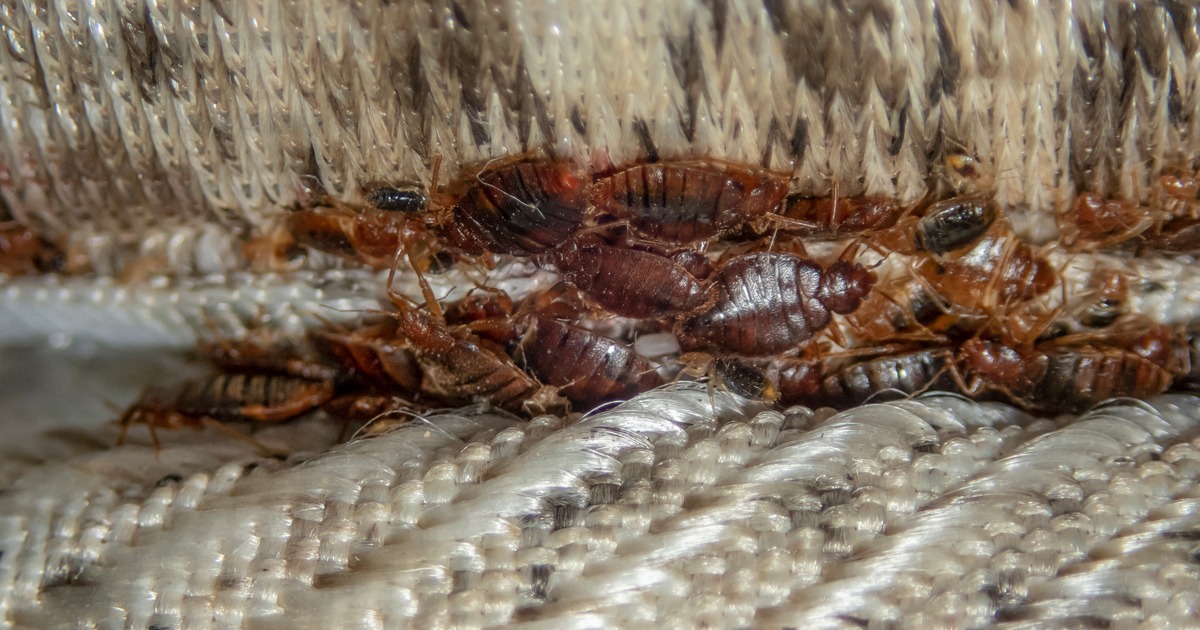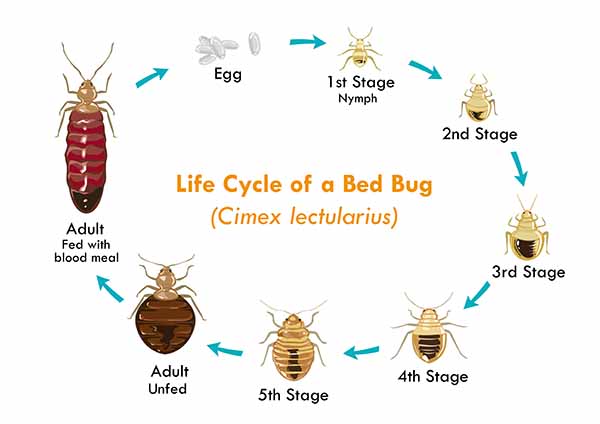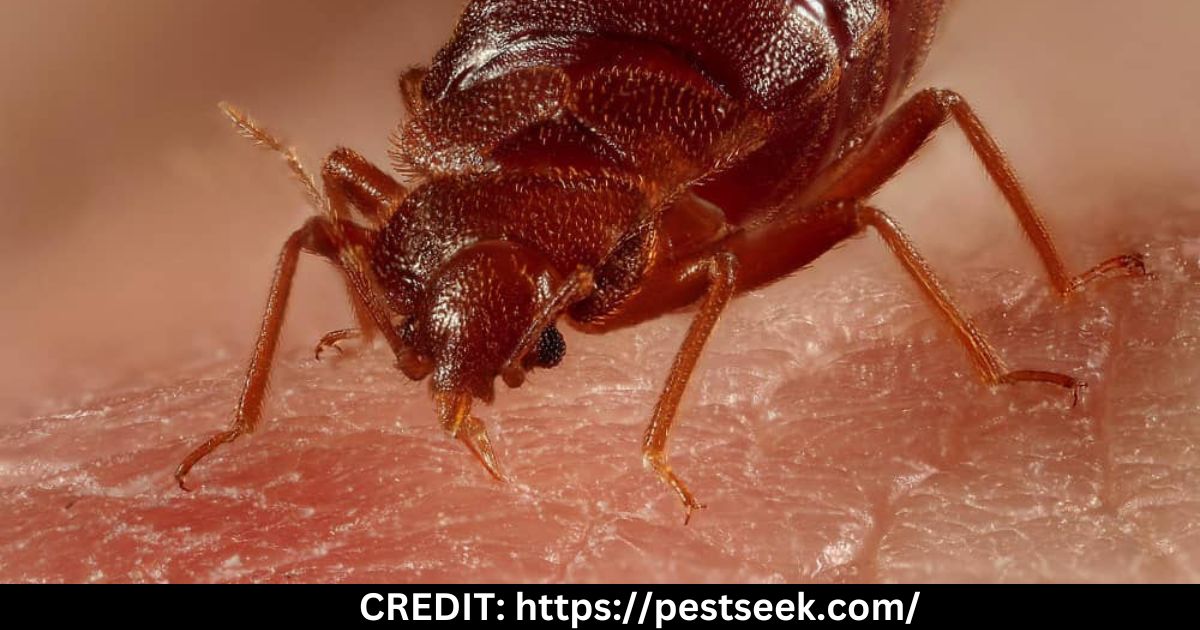Bed bugs can survive without feeding for up to 20-400 days, depending on the environment and conditions. Their ability to endure long periods without a blood meal makes them resilient pests in domestic and commercial settings.
Understanding their survival capabilities is crucial for effective pest management and eradication. Bed bugs are notorious pests that infest homes, hotels, and other spaces, causing distress and discomfort for occupants. They are expert at hiding in cracks, crevices, and furniture, making detection and elimination challenging.
Their survival without feeding is a key factor in their persistence and ability to spread to new locations. We will delve into the specifics of how long bed bugs can survive without a blood meal, and offer insights on effective pest control strategies to combat these resilient insects.
Factors Affecting The Survival Period
Temperature And Humidity Levels
Temperature and humidity play crucial roles in determining how long bed bugs can survive without feeding. Extreme temperatures, both high and low, can significantly impact their lifespan. At cold temperatures near freezing, bed bugs can enter a state of diapause, slowing down their metabolic activity to conserve energy and survive for several months without a blood meal. Conversely, high temperatures above 113°F can be lethal to bed bugs, causing them to die within a few hours.
Life Stage Of The Bed Bug
The life stage of the bed bug also influences its ability to survive without feeding. Nymphs, or immature bed bugs, require regular blood meals to molt and develop into adults, whereas adult bed bugs can survive for longer periods without feeding. Young bed bugs are typically more vulnerable to dehydration and starvation compared to adults, making the survival period largely dependent on the age of the bed bug.

Credit: www.biotechtermiteandpest.com
Survival Timeframes In Different Conditions
Bed bugs are tenacious pests that are known for their ability to survive for long periods without feeding. Their ability to adapt to different environmental conditions plays a significant role in determining their survival timeframes. Understanding the survival timeframes in different conditions can help in developing effective strategies for bed bug control and eradication.
Average Survival Time Without Feeding
On average, bed bugs can survive for about 20 to 400 days without feeding, depending on the temperature and humidity levels of their environment. At normal room temperature, they can go without a blood meal for approximately 2 to 4 months. However, in cooler temperatures, their survival time can be extended to several months, whereas in warmer conditions, their survival time may decrease.
Extreme Survival Cases
In extreme cases, bed bugs have been known to survive for several months up to a year without feeding. Factors such as access to alternate hosts, such as pets or other animals, and the availability of hiding places can contribute to their prolonged survival. Additionally, bed bugs can survive longer without feeding in dormant or hibernation-like states under certain conditions, allowing them to endure extended periods without a blood meal.
Behavioral Adaptations
Behavioral Adaptations:
Ability To Enter Dormancy
Bed bugs have the ability to enter dormancy when deprived of a blood meal, allowing them to conserve energy and survive for long periods without feeding.
Search For Hosts
When hungry, bed bugs exhibit a remarkable ability to search for hosts. They are drawn to human body heat and carbon dioxide, aiding in their quest for a blood meal.

Credit: emoyer.com
Implications For Infestations
Bed bugs can survive for several months without feeding, depending on environmental conditions. Implications for infestations are significant, as prolonged survival without food makes eradication efforts more challenging. Understanding the longevity of bed bugs without feeding is crucial for effective pest control strategies.
Potential For Prolonged Infestations
Bed bugs are notorious for their ability to survive without feeding for long periods of time. This trait poses serious implications for infestations, as it allows these pesky pests to establish prolonged residencies within our homes or businesses.
Unlike other parasites, bed bugs can last for weeks without a blood meal. In fact, research has shown that adult bed bugs can survive up to three months without feeding, while nymphs (young bed bugs) can endure even longer.
As a result, infestations can quickly escalate when left unchecked. Bed bugs will patiently wait in hiding, such as behind headboards, inside mattresses, or within cracks and crevices, until a suitable host becomes available. This means that even if the primary source of infestation is removed, there is a high risk of re-infestation if any bed bugs are left behind.
Challenges In Eradication
The remarkable ability of bed bugs to survive without feeding also poses significant challenges when it comes to eradication. Traditional pest control methods, such as spraying insecticides, may not be effective against these resilient creatures.
Given their ability to lay dormant for extended periods, a single missed bed bug can reignite a full-blown infestation. This is especially true in multi-unit dwellings, where bed bugs can easily migrate from one apartment to another.
Furthermore, bed bugs have developed resistance to many common insecticides, making eradication efforts even more difficult. This resistance, coupled with their exceptional survival skills, underscores the need for a comprehensive and strategic approach to pest control.
Bed bug eradication often requires a combination of tactics, including heat treatments, steam cleaning, vacuuming, and meticulous inspection. It is crucial to enlist the services of a professional pest control company experienced in dealing with bed bug infestations.
| Implication | Explanation |
|---|---|
| Prolonged Residencies | Bed bugs can survive without feeding for months, allowing infestations to persist. |
| Risk of Re-infestation | Even if the primary source is removed, any remaining bed bugs can cause a new infestation. |
| Resistance to Insecticides | Bed bugs have developed resistance to many common insecticides, making eradication challenging. |
In conclusion, the ability of bed bugs to survive for extended periods without feeding presents significant challenges when it comes to eradicating infestations. Understanding the implications of their survival skills is crucial for implementing effective pest control strategies and seeking professional assistance when necessary.
Prevention And Control Methods
When it comes to dealing with bed bugs, prevention and control are key. Regular inspections and the use of integrated pest management techniques can help keep these pesky creatures at bay.
Regular Inspections
Regular inspections are essential for early detection and prevention of bed bug infestations. By conducting routine checks in your home, you can identify any signs of bed bugs before they become a significant problem. Here are some tips for conducting effective inspections:
- Start by examining your mattress, bed frame, and headboard. Look for any live bugs or their shed skins, fecal stains, or blood spots.
- Check the seams, crevices, and tufts of your furniture, as bed bugs often hide in these areas.
- Inspect your curtains, carpets, and electrical outlets for any signs of infestation.
- Remember to also inspect your luggage, clothing, and other personal belongings after traveling or staying in hotels.
By regularly inspecting your home and taking immediate action upon discovery of any bed bug activity, you can prevent their numbers from multiplying and minimize the chances of a full-blown infestation.
Use Of Integrated Pest Management
To effectively control and eliminate bed bugs, an integrated pest management (IPM) approach is highly recommended. IPM involves a combination of strategies that target the bugs at different stages of their life cycle. Here are some key components of an IPM program:
- Inspection: Thoroughly inspect your home to determine the extent of the infestation and identify potential hiding spots.
- Identification: Accurately identify the pest species to ensure the appropriate treatment method is used.
- Sanitation: Maintain a clean living environment by regularly vacuuming, laundering bedding at high temperatures, and keeping clutter to a minimum.
- Physical Control: Use techniques like steam cleaning, heat treatment, and trapping to directly eliminate bed bugs.
- Chemical Control: If necessary, apply targeted insecticides to areas with bed bug activity. This should be done only by trained professionals following pesticide labels and guidelines.
- Educate and Communicate: Inform residents and employees about bed bugs, their prevention, and the importance of early detection.
By implementing an integrated pest management approach, you can effectively control bed bugs and keep their infestations under control. Remember, early intervention is crucial in preventing these tiny pests from causing significant discomfort and inconvenience in your home.
Health Risks Of Bed Bug Infestations
Bed bugs can survive without feeding for up to several months, increasing the risk of infestation-related health issues. Their prolonged survival without food raises concerns for potential allergic reactions, skin irritation, and psychological distress for those affected. It’s crucial to address bed bug infestations promptly to mitigate health risks.
Physical Risks
Bed bug bites can lead to skin irritation and allergic reactions.
Scratching can cause secondary skin infections.
Psychological Impact
Anxiety and insomnia are common due to stress from bed bug presence.
Embarrassment and social isolation may result from infestations.

Credit: allergystore.com
Frequently Asked Questions On How Long To Bed Bugs Survive Without Feeding?
How Long Can Bed Bugs Survive Without Feeding?
Bed bugs can survive without feeding for up to 6 to 12 months, depending on environmental conditions. However, they usually seek a blood meal every 5 to 10 days when a host is present. They have the ability to remain dormant and go into a state of hibernation when food is scarce.
Do Bed Bugs Die If They Don’t Feed?
Bed bugs have a remarkable ability to adapt during periods of starvation by entering a dormant state. While they may become weakened, they can still survive for several months without feeding. In fact, bed bugs can even withstand extreme temperatures and live in hiding until they find a suitable host.
How Does Starvation Affect Bed Bugs?
During periods of starvation, bed bugs will become less active and their reproductive ability may decline. However, they can still survive for long periods without food. When a host becomes available, they will aggressively seek a blood meal and can quickly reproduce, resulting in an infestation.
Can Bed Bugs Survive Without Human Blood?
While bed bugs prefer human blood, they can survive by feeding on the blood of other animals, including pets like dogs and cats. They can also survive for short periods without any blood meal. However, they can only reproduce successfully and thrive when they have access to a suitable host for feeding.
Conclusion
Bed bugs can survive long periods without feeding. Understanding their resilience is key to effective elimination. Regular inspections and early intervention are crucial in managing infestations. Stay informed and proactive in preventing bed bug presence in your surroundings. Prioritize a safe and comfortable living environment.

I’m MD Tanvir, and I bring years of expertise gained from working closely with pest control companies to the forefront. My journey in the industry has inspired me to launch Bug Battler, a platform aimed at equipping people with the know-how to combat pests autonomously. Through Bug Battler, I aim to empower individuals with practical insights to tackle pest infestations effectively.

